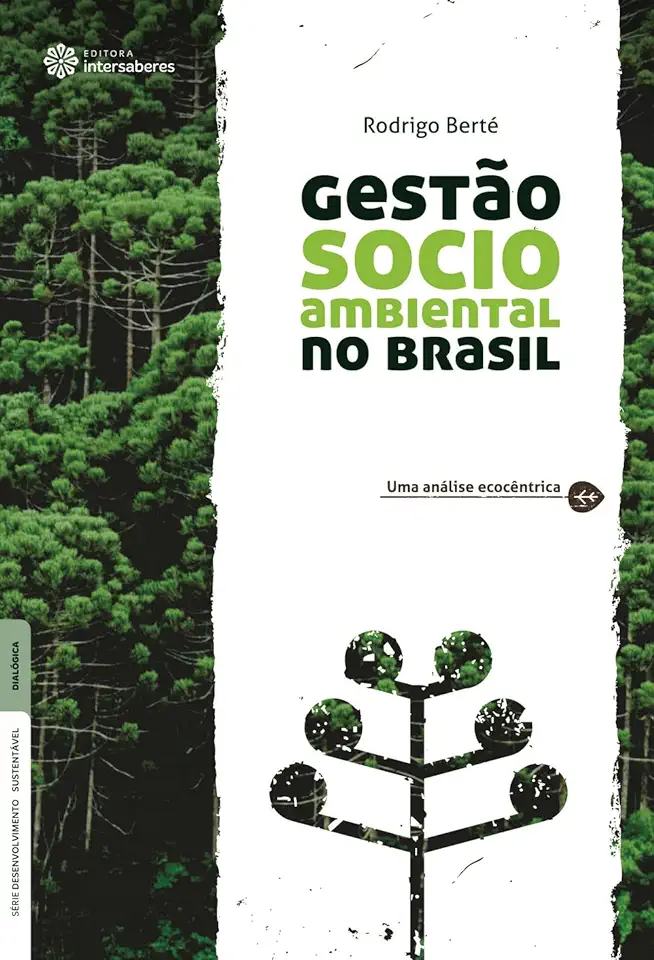
Socioenvironmental Management in Brazil - Rodrigo Berté
Socioenvironmental Management in Brazil: A Comprehensive Guide to Sustainable Development
Introduction
In today's world, the need for sustainable development is more urgent than ever. With the increasing pressure on our planet's resources, it is essential that we find ways to balance economic growth with environmental protection. Brazil, as one of the world's largest and most biodiverse countries, faces unique challenges in achieving socioenvironmental sustainability.
Socioenvironmental Management in Brazil
Socioenvironmental management is a holistic approach to sustainable development that integrates economic, social, and environmental considerations into decision-making processes. It recognizes that these three dimensions are interconnected and interdependent, and that true sustainability can only be achieved by addressing them all simultaneously.
In Brazil, socioenvironmental management is a relatively new concept, but it is rapidly gaining traction. The government, businesses, and civil society organizations are increasingly recognizing the importance of sustainable development, and are taking steps to implement socioenvironmental management practices.
Key Challenges to Socioenvironmental Management in Brazil
Despite the progress that has been made, Brazil still faces a number of challenges in achieving socioenvironmental sustainability. These challenges include:
- Deforestation: Brazil is home to the Amazon rainforest, one of the most important ecosystems on Earth. However, deforestation rates in the Amazon have been increasing in recent years, driven by factors such as logging, cattle ranching, and soybean farming.
- Water pollution: Brazil's water resources are also under threat from pollution from industrial activities, sewage, and agricultural runoff. This pollution can have a devastating impact on human health and aquatic ecosystems.
- Air pollution: Air pollution is a major problem in Brazil's cities, particularly in São Paulo and Rio de Janeiro. This pollution is caused by a combination of factors, including vehicle emissions, industrial activities, and burning of fossil fuels.
- Climate change: Brazil is already experiencing the effects of climate change, such as rising sea levels, more extreme weather events, and changes in agricultural yields. These impacts are expected to become more severe in the future, posing a significant threat to Brazil's economy and society.
Opportunities for Socioenvironmental Management in Brazil
Despite the challenges, there are also a number of opportunities for socioenvironmental management in Brazil. These opportunities include:
- Renewable energy: Brazil has a wealth of renewable energy resources, such as solar, wind, and hydropower. Developing these resources can help to reduce Brazil's dependence on fossil fuels and mitigate climate change.
- Sustainable agriculture: Brazil is a major agricultural producer, and there is significant potential to increase agricultural productivity while reducing environmental impacts. This can be achieved through practices such as agroforestry, conservation agriculture, and organic farming.
- Ecotourism: Brazil's natural beauty and biodiversity make it a prime destination for ecotourism. This industry can provide economic benefits to local communities while also protecting the environment.
- Education and awareness: Raising awareness of socioenvironmental issues is essential for promoting sustainable development. This can be done through education programs, public campaigns, and media outreach.
Conclusion
Socioenvironmental management is a critical tool for achieving sustainable development in Brazil. By addressing the challenges and seizing the opportunities, Brazil can build a more prosperous, just, and sustainable future for all its citizens.
Call to Action
If you are interested in learning more about socioenvironmental management in Brazil, I encourage you to purchase this book. It provides a comprehensive overview of the topic, and it is an essential resource for anyone who wants to understand the challenges and opportunities of sustainable development in Brazil.
Enjoyed the summary? Discover all the details and take your reading to the next level — [click here to view the book on Amazon!]